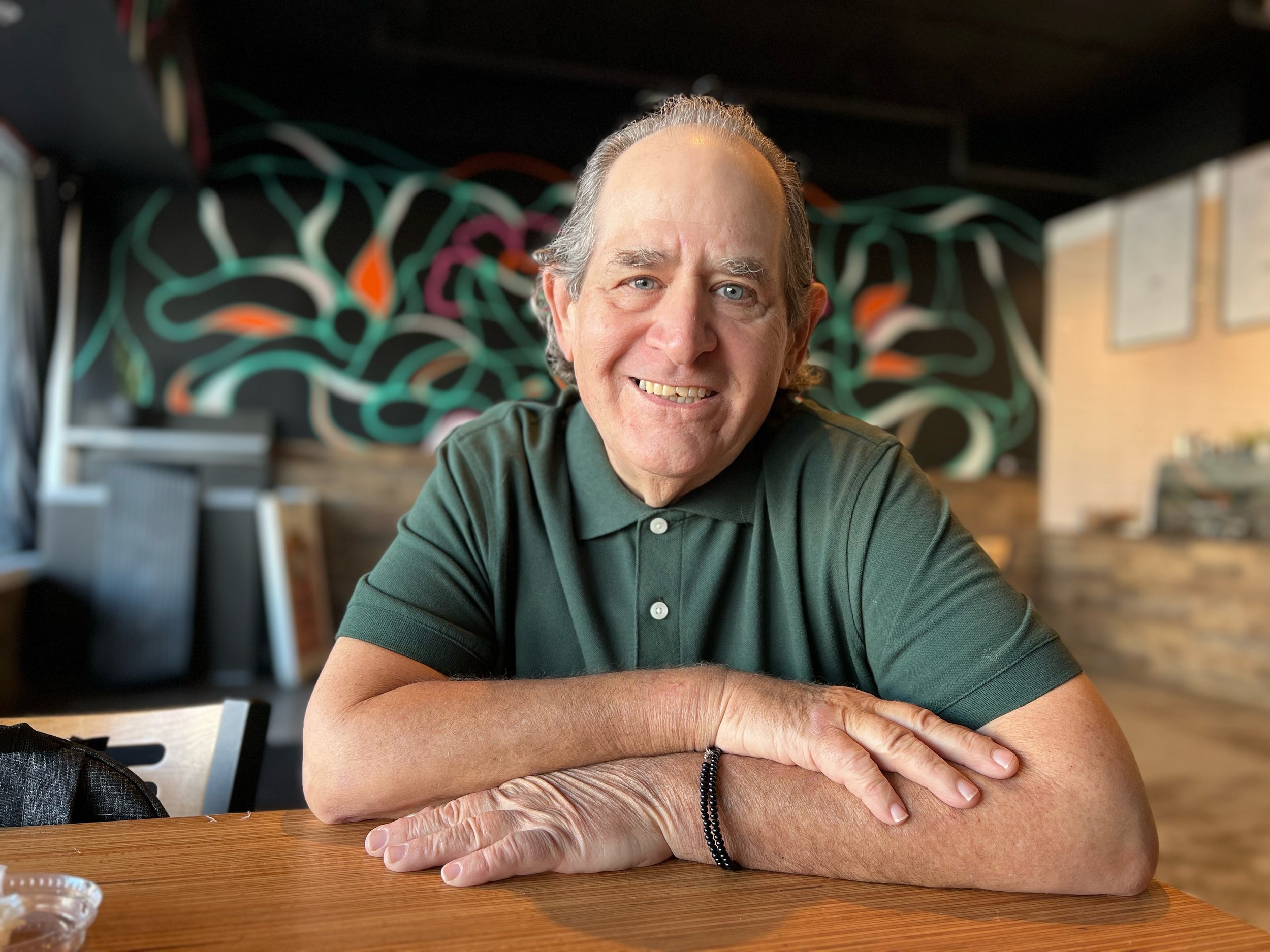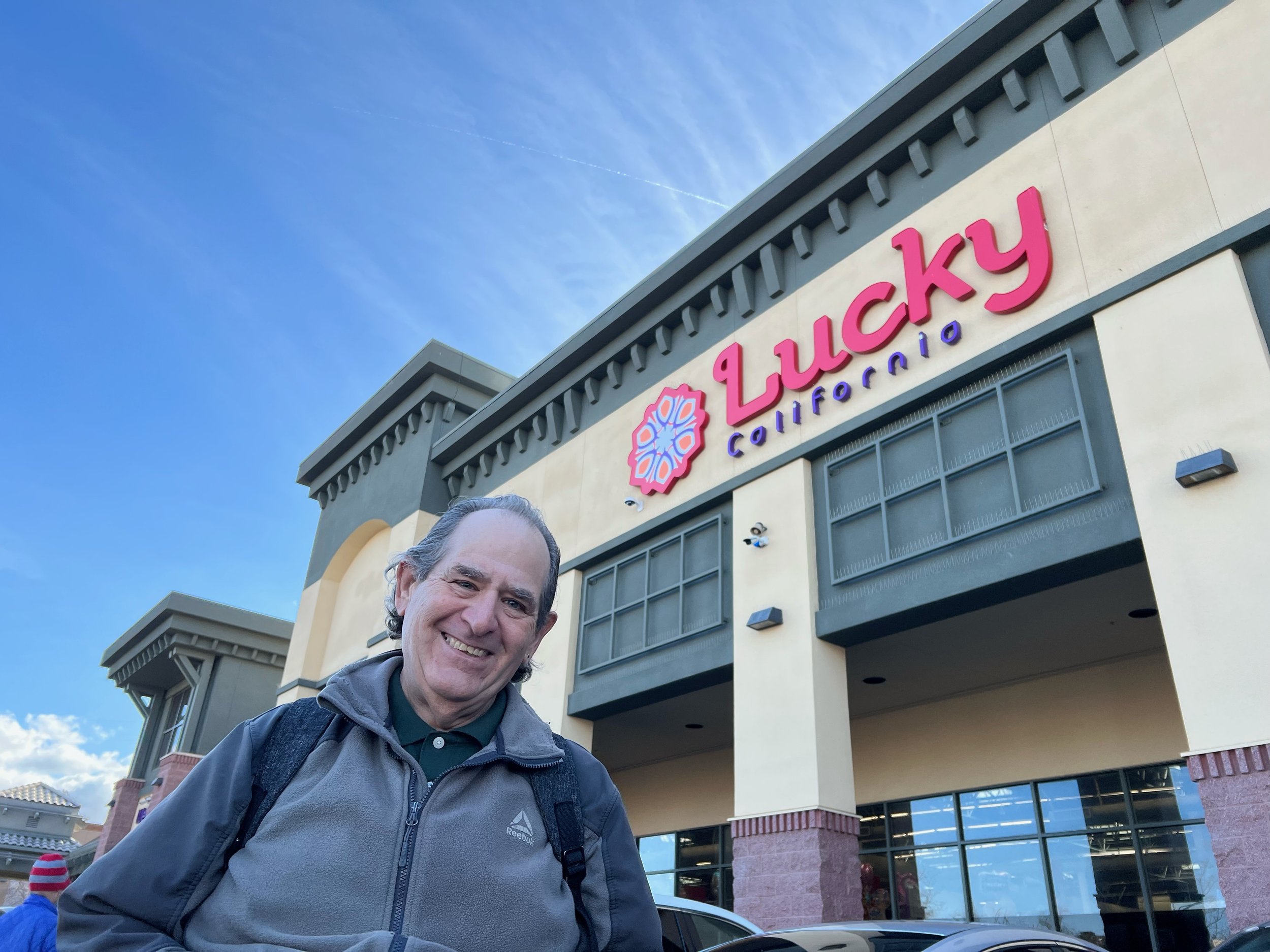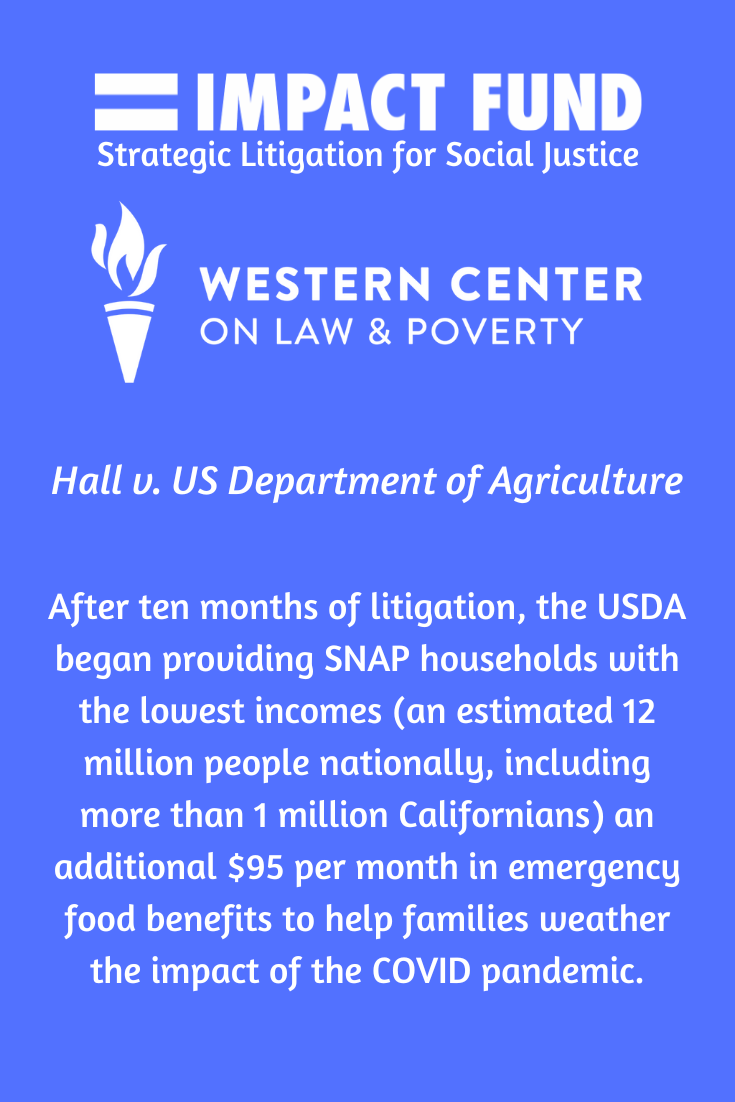Hunger Relief Heroes Ensure Most Vulnerable Households Receive Critical Food Benefits
Steven Summers, 2023 Inductee to Class Action Hall of Fame
Three years out from the beginning of the COVID 19 pandemic, it easy to forget what it was like before vaccines when we worried about food shortages, long lines at the grocery store, washing the stuff you brought home from the store, or even if it was safe to leave our homes. In 2020, I worked at an online retailer and I was returning to that job but not until May. I needed a gig in the interim. Through my volunteer advocacy with the Food Bank, I got a contract job helping to organize an event called Hunger Action Day. I had just started when Covid hit and everything went into lockdown and shelter in place.
The event was canceled and without income, I applied for unemployment and Supplemental Nutrition Assistance Program (SNAP) benefits. I lived on my savings till those came through.
Congress passed relief measures to support people like me who were out of work due to the pandemic, increasing unemployment for example. Congress also authorized increased food benefits called Emergency Allotments for people on SNAP to help with the financial uncertainty and higher food prices. But the U.S. Department of Agriculture undermined this relief by saying that Emergency Allotments were only available to round people’s food benefits up to the maximum amount for their household size. That meant that people with little or no income, like me, who were already receiving the maximum would not get any additional help.
“With this lawsuit, I think we met The Moment. It was one of the most rewarding experiences I have had as an advocate because it helped so many people.” - Steven Summers
When I learned what the USDA did, I was angry and frustrated for a moment. Angry that it was unfair and frustrated knowing it’s just so typical of those who’ve made it their mission to attack safety net programs, especially SNAP. There’s so much dis-information about SNAP out there. Maybe the worst of myth is that SNAP covers a person's food budget for the month for them or their family. It surely does not. People were receiving the maximum amount of SNAP because they needed it and qualified for it. And they needed the additional Emergency Allotments because of the pandemic—to deal with food shortages, higher prices, long lines, and living in lockdown—regardless of the amount of regular SNAP they were receiving. In those days, just being able to access food had a cost to it. But despite overwhelming bipartisan support for Emergency Allotments, the USDA and the Trump Administration were thwarting the intent of the COVID relief passed by Congress. They were playing politics with people’s hunger.
That is why I decided to take a stand and together with my co-plaintiff Robin Hall sue the USDA to make Emergency Allotments available for everyone. I first had to rely on CalFresh as a result of the Great Recession in 2008 and spending 2009 homeless. In my post-homeless life, for a number of years I was a volunteer at the Food Bank. I worked with a group of volunteers from the community all with some experience with food insecurity, who would advocate mostly on the policy side on hunger and poverty issues. That work was very gratifying and there were many successes. Things stayed shut down for months, when they came back, they came back slowly and different from what they were. I was thinking about how I could continue somehow as an anti-hunger advocate when the opportunity to participate in our lawsuit with the Western Center on Law & Poverty and The Impact Fund.
Being involved in the lawsuit has been very gratifying - and continues to be, that’s why I’m writing this! I gave my testimony and shared my experience and hopefully told my story to good effect. Although we lost in the first round at the trial court, I knew it was just the opening shot of a long battle and we weren’t going to give up that easily. I remember those conversations. There was never any, we give up, we’re stuck, we lost, it’s over etc. The Western Center and Impact Fund were always saying, we can try this, we could do that, we could go ask these guys-- it was always about finding a way. The high point of the case was the settlement that made sure everyone would receive emergency allotments and put millions of dollars of urgently needed food benefits in people’s pockets. I felt proud to have had a part in what we had accomplished. Looking back on it, that was an unprecedented moment in our history that called for unprecedented responses. With this lawsuit, I think we met The Moment. We did our part to help in a way that had a far-reaching impact. It was one of the most rewarding experiences I have had as an advocate because it helped so many people.
As I write this, SNAP is about to come under attack again. In states like Iowa, it already has. Make cuts to the safety net including SNAP or we won’t raise the debt limit etc. We all know them. We’ve seen this before. My aspiration is to continue to tell my story and fight to expand the safety net because it really works. It worked for me to rebuild my life from being homeless and it helped me to stay afloat during the pandemic. Not just stay afloat but maybe even be better off and more secure than before the pandemic of the expanded relief under COVID. When you consider all that’s happened since COVID, we’re still living in unprecedented times and I’m grateful for a little added security. As the fight to protect the safety net programs like SNAP ramps up, it should give us all hope that the WCLP and the Impact Fund are working to make sure that programs stay fair, just and equitable.
Robin Hall and Steven Summers were inducted into the Impact Fund Class Action Hall of Fame on February 24th, 2023 in recognition of their courage, sacrifice, commitment, and determination that led to a significant advance in social justice.
Robin Hall (4th from left) and Steven Summers (furthest to the right) together with the Class of 23






